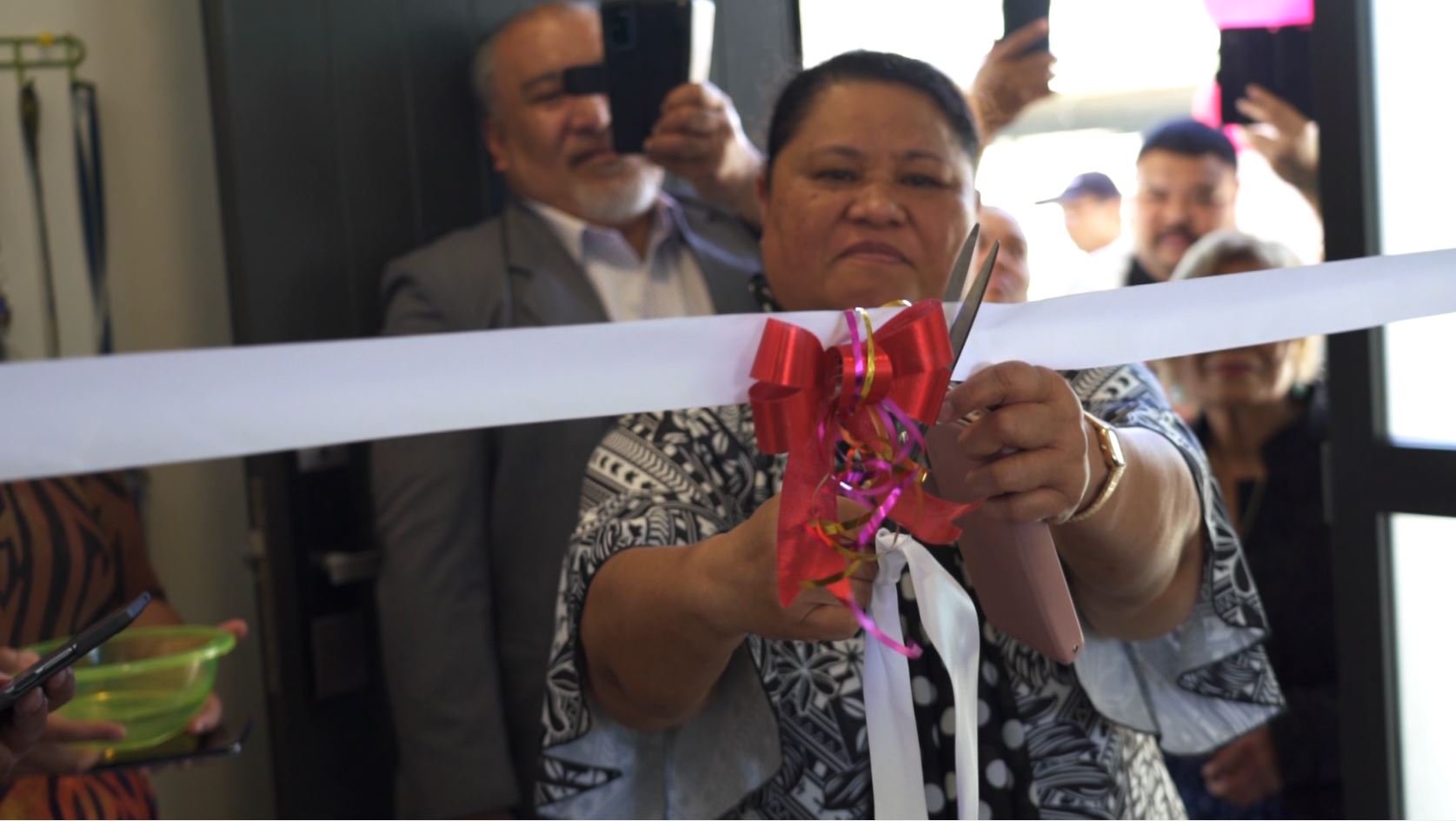Many first-time home buyers find a brand new six-bedroom home out of reach, but a Samoan family in Mangere has achieved theirs through collective effort.
Their journey began a year ago when they outgrew their Kainga Ora home in Mangere, where they had lived for over twenty years.
The eldest child, Litara Toleafoa, 33 years old, said they needed a home that could accommodate seven people, and it would only be possible if his siblings were also included in the process.
“All of us are really trying to contribute to helping each other with the mortgage,” he says.
“This is something that me and my brothers, it’s also something we wanted to do for our mum as well and it’s our thanks to her.”
The family moved in a month ago, and Litara says it has given them a sense of freedom that they had never experienced before.
“This is our money going into our own home. It’s not going to rent and all that stuff. Rent is money wasted, but this is like a good investment for you.”
Vai Harris, from the Vaiola Pacific Island budgeting service in Mangere, helped the family organise their finances by giving them a financial plan that saved them enough money in less than a year.
“The mum was good. She is the one who put so much aside and also put money aside to clear their car loan and other existing loans which were quite high in interest,” she says.
“I always say to them, ‘three of you now own the house – you can not go and get a loan because if you miss [a payment], it affects your house.'”
Alan Leuluai, Senior Advisor at Leuluai Financial, says Pacific families, especially those who are renting, should look to buy a house as soon as possible.
“Really, the best time to buy a house is five years ago because house prices increase every seven to 10 years, so the same house you were going to buy six years ago is nearly doubling,” he says.
But he admits that it’s easier said than done for many Pacific families, so he encourages them to include their working adult children living at home.
“Banks are quite lenient because they understand that’s the culture of the Pacific people. We all gather to help one another and if the children are living at home, it makes it so much more stronger.
If they want to buy another house, they can use the equity that’s built up to buy the next house and that way, the parents can stay [in the first house], and [the children] can move forward.”
However, this approach also comes with risks despite making house-buying more feasible for Pacific families.
“The risk is if later on the children get married or they want their own house, it makes it a bit hard because their names are on the mortgage, and so they can’t abstain from their responsibility, and if things go south, the banks will go ‘well you’re all responsible’, and some of them could not be living there.
“But surprisingly, I’ve been in this industry for over 30 years, and I can’t think of one that’s gone through that because the house is paramount to that family and so, once they get that house, they’re going to do everything they can to fight to keep that house. So they will work that out as they go on.”













